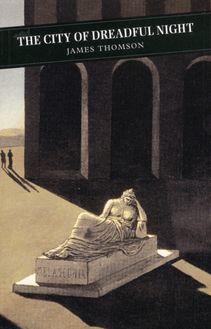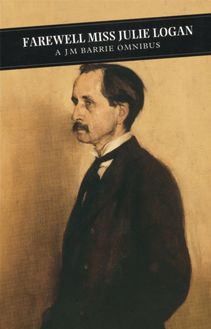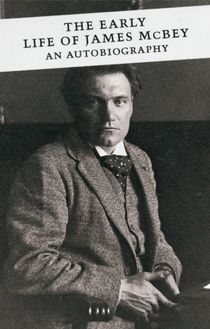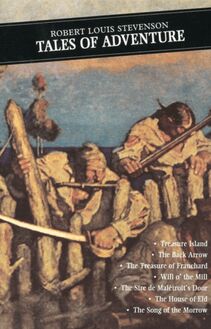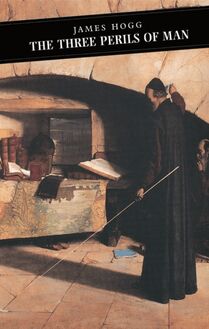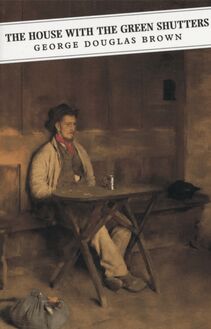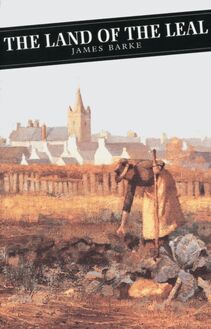Journey to the Hebrides , livre ebook
321
pages
English
Ebooks
2010
Vous pourrez modifier la taille du texte de cet ouvrage
Obtenez un accès à la bibliothèque pour le consulter en ligne En savoir plus
Découvre YouScribe en t'inscrivant gratuitement
Découvre YouScribe en t'inscrivant gratuitement
321
pages
English
Ebooks
2010
Vous pourrez modifier la taille du texte de cet ouvrage
Obtenez un accès à la bibliothèque pour le consulter en ligne En savoir plus
Publié par
Date de parution
01 juillet 2010
Nombre de lectures
2
EAN13
9781847675385
Langue
English
Poids de l'ouvrage
1 Mo
Publié par
Date de parution
01 juillet 2010
Nombre de lectures
2
EAN13
9781847675385
Langue
English
Poids de l'ouvrage
1 Mo
JOURNEY TO THE HEBRIDES
A Journey to the Western Islands of Scotland
S AMUEL J OHNSON
The Journal of a Tour to the Hebrides with Samuel Johnson
J AMES B OSWELL
Edited and Introduced by
I AN M C G OWAN
Contents
Introduction
Map
A Journey to the Western Islands of Scotland
The Journal of a Tour to the Hebrides
Notes
Introduction
‘The story of a mountebank and his zany’ sneered the patrician Horace Walpole on reading Boswell’s Journal of a Tour to the Hebrides with Samuel Johnson in 1785. His Etonian disdain for a provincial hack and a pushy Scot reflects the reading public’s uncertainty with one of the period’s most innovative and sensational books. Some twenty years before, the young Boswell, on the rampage in London, had faced metropolitan ignorance and suspicion of Scottish and especially highland culture and politics after the ’45 rising. Yet shortly after their first meeting in 1763, his literary hero Samuel Johnson, the alleged embodiment of anti-Scottish prejudice, expressed a ‘very romantick fancy’ that they might visit the Hebrides together, as his father, a Lichfield bookseller, had given him Martin’s account. (The National Library of Scotland possesses the copy of Martin Martin’s A Description of the Western Islands of Scotland (1703), inscribed by Boswell, which eventually toured Scotland with them.)
By the mid-1760s, Johnson, a true professional writer, had finally won a reputation as poet, lexicographer, Shakespearean editor and moral essayist, as well as formidable conversationalist. Boswell’s social skill over a decade in persuading the elderly and infirm lover of London to make the uncomfortable tour in 1773 has not been properly recognised: exploiting his family’s social standing, he procured invitations from the chiefs Macdonald and Macleod, and from Scottish literati such as Robertson and Beattie (typically, he later published the correspondence in the Tour ). His persistence paid off when Johnson finally arrived in Edinburgh on 14 August 1773 for a tour, during Boswell’s legal vacation, that took them up the east coast of Scotland, via Aberdeen and Inverness to Skye, Mull and other islands, to Inveraray, to Boswell’s ancestral home at Auchinleck, and back to Edinburgh, from which Johnson set out for London on 22 November. Between August and November, Boswell contributed seven brief reports to the Caledonian Mercury and one to the London Chronicle ; in January 1774 he drew on these for an article in the London Magazine , of which he was part owner.
Johnson’s A Journey to the Western Islands of Scotland was published on 18 January 1775, anonymously, though the style and characteristic interests proclaimed its authorship. Drawing on the ‘book of remarks’ he kept on the tour, and on letters to his friends the Thrales, he makes polite gestures towards the early Scottish enlightenment, and occasionally comments on individuals and places; but essentially he is the philosophic traveller, meditating on broad themes of social and economic change, striving to come to grips with the meanings underlying his observations. He knew that, a generation after the ’45, they were too late to observe the classic forms of highland society (p. 49):
There was perhaps never any change of national manners so quick, so great, and so general, as that which has operated in the Highlands, by the last conquest, and the subsequent laws. We came thither too late to see what we expected, a people of peculiar appearance, and a system of antiquated life. The clans retain little now of their original character, their ferocity of temper is softened, their military ardour is extinguished, their dignity of independence is depressed, their contempt of government subdued, and their reverence for their chiefs abated. Of what they had before the late conquest of their country, there remain only their language and their poverty. Their language is attacked on every side.
Given the contemporary interest in primitive man and his ‘state of nature’, stimulated by Rousseau (who had encouraged Boswell to visit Corsica in 1765), it was natural to analyse the characteristics of remote and mountainous communities, and to contrast with their feudal loyalties and barter economy what Carlyle would later call the ‘cash nexus’ of a commercial society. Yet Johnson recognised that the decline in clan chiefs’ traditional power and their increased financial demands on their tenants underlay the ‘epidemical fury of emigration’, then just beginning, that he realised would create in the Hebrides a ‘lasting vacuity’. His praise of the young Laird of Coll for ‘the proper disposition of a chieftain’ contrasts with the travellers’ opinion of the mean-spirited Sir Alexander Macdonald.
Profoundly Christian, Johnson could only regret Scotland’s religious past, in which ‘the malignant influence of Calvinism has blasted ceremony and decency together’; the condition of the University and the Cathedral at St. Andrews filled his mind with ‘mournful images’: ‘The kindness of the professors did not contribute to abate the uneasy remembrance of an university declining, a college alienated, and a church profaned and hastening to the ground.’ (p. 7) At I colm kill, he rises magnificently to the occasion: ‘once the luminary of the Caledonian regions, whence savage clans and roving barbarians derived the benefits of knowledge, and the blessings of religion …. That man is little to be envied, whose patriotism would not gain force upon the plain of Marathon, or whose piety would not grow warmer among the ruins of Iona.’ (p. 131)
Given the oral nature of much Gaelic culture, Johnson found it difficult to amass evidence on debated issues: on the Second Sight, ‘I never could advance my curiosity to conviction; but came away at last only willing to believe.’ (p. 97) A major controversy of the time raged around James Macpherson’s alleged discovery and translation of Fingal , a primitive Gaelic epic by ‘Ossian’, much praised by the Edinburgh literati. Johnson, naturally sceptical, denounced Macpherson’s ‘insolent’ refusal to produce evidence of substantial originals. He touched a raw nerve in declaring: ‘The Scots have something to plead for their easy reception of an improbable fiction: they are seduced by their fondness for their supposed ancestors. A Scotchman must be a very sturdy moralist, who does not love Scotland better than truth.’ (p. 105)
Within Johnson’s oeuvre, the Journey is a minor classic; in Scotland it was a national scandal, provoking many attacks including the ‘malignant abuse’ of the Rev. Donald McNicol’s Remarks (1779): David Hume spoke of it to Boswell ‘in terms so slighting that it could have no effect but to show his resentment’; Macpherson demanded that Johnson withdraw his opinion of Ossian, to which he replied: ‘I received your foolish and impudent letter.
Any violence offered me I shall do my best to repel; and what I cannot do for myself, the law shall do for me. I hope I shall never be deterred from detecting what I think a cheat by the menaces of a ruffian.’
Boswell meanwhile saw himself as custodian of their original experience: he wrote eleven pages of ‘Remarks’ on Johnson’s book, minor corrections of fact and weaker stylistic comments. During their journey he had kept a journal in three notebooks and some loose papers, as far as 22 October 1773, with brief notes to 5 November, and journal 10–11 November. The manuscripts survived as part of the great ‘archive’ that came down in his family, and became public only in the twentieth century. Favoured friends such as Sir Joshua Reynolds were occasionally allowed to read this remarkable record; as late as 1782, from some twenty words of notes, Boswell’s astonishing memory recreated 37 pages of detail, including Johnson’s whisky-drinking, dicta on Goldsmith, Pope and others, and a brilliant account of their visit to the Duke of Argyll’s Castle at Inveraray.
The original MS journal shows Boswell’s skill in executing and recording his experiment on Johnson in an alien environment; and is part of both his biographical and autobiographical projects, with his usual sharp observation of personality and dramatic detailing of conversation. Largely written during the tour, it was occasionally posted several days in arrears, with violations of chronology: his concern for precision and fullness led him to regret that ‘what is written falls greatly short of the quantity of thought. A page of my Journal is like a cake of portable soup. A little may be diffused into a considerable portion.’ (Johnson praised its style and encouraged its amplitude.) Boswell’s touristic observations testify to his accuracy and assiduity, but people rather than places were his forte; with little taste for rural beauties, he dutifully piles up facts about the romantic scenes or wild coastlines: ‘A landscape or view of any kind is defective, in my opinion, without some human figures to give it animation.’
The journal has valuable material on the 1745 rising, of which Boswell later intended to write a history; it charts the tension between accepting the Hanoverian succession and his sometimes comic nostalgia for the days of the Stewarts, the old feudal ways, and his family connection with Robert the Bruce. (Scottish pride later cost him 5/-to have a wood block for his title page with the family crest of a hooded hawk and the motto ‘Vraye Foy’.) His recurrent religious strain culminates in his resolutions at the cathedral on Iona, and his ‘serious joy’ in hearing himself read aloud a favourite sermon. He is fearful of ghosts, uneasy about witches, dreams of family deaths, and seeks out stories of the Second Sight. Such was the raw material from the tour in his ‘archive’.
Johnson died on 13 December 1784, while Boswell was in Edinburgh. Within days the London newspapers were reporting biographies in preparation; Boswell, with unique material, needed to find a way of handlin
